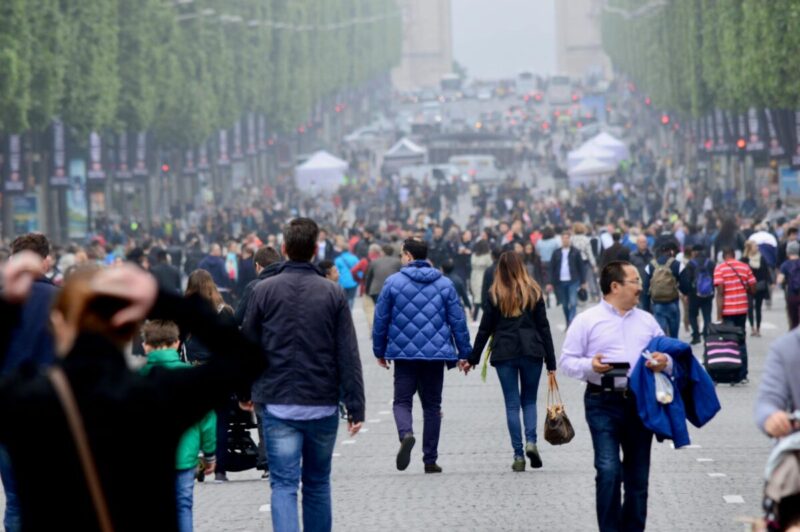13 Myths About Parisians Being Rude
Parisians have a worldwide reputation for being cold or unfriendly, but much of it comes from misunderstandings. Here are some common myths about rudeness in Paris – and what the real deal is.
1. They Don’t Say Hello
In Paris, every interaction begins with a greeting. When you enter a shop or café, you’re expected to say “Bonjour” to the staff before anything else. If you skip it and launch straight into your order, it feels abrupt and impolite, and you may get a cooler reception.
2. They Hate Speaking English

It’s a common belief that Parisians refuse to use English. The truth is mixed: plenty can manage some English, but they don’t like being approached with it bluntly.
Start with a greeting in French, then politely ask if they speak English. Often, they’ll make the switch if they’re comfortable, but if they keep answering in French it usually means their English is limited, not that they’re being rude.
3. Waiters Are Unfriendly
Restaurant service in Paris can feel brisk. But it’s not meant to be rude, it’s cultural. French servers don’t hover or check in constantly. They give you space, and you’re expected to flag them when you need something.
4. They Never Smile
Parisians aren’t big on smiling at strangers, including locals. It doesn’t mean they dislike you. Smiles are reserved for genuine interactions, not automatic politeness. When you do connect, the smile you get feels more sincere.
5. They Roll Their Eyes at Tourists
The eye-roll has become the symbol of Parisian rudeness. But it usually isn’t personal, it’s a reflex when someone breaks an unspoken rule, like skipping a greeting or talking loudly in a quiet space.
Think of it as a cultural sigh, not a rejection. Most of the time, the interaction continues normally once you adjust.
6. They Push on the Metro
Crowded metro rides in Paris can feel harsh, with people squeezing in, brushing past, or closing gaps quickly. It isn’t directed at you, it’s the only way the system works at rush hour.
The unspoken rule is simple: move fast, keep right on escalators, and step aside to let people off before you get on. Follow that rhythm and you’ll blend right in.
7. They’re Cold in Shops
At a bakery or corner store, the exchange is quick, bonjour, order, merci, goodbye. This can feel abrupt to visitors who expect small talk. But for locals, it’s respectful and efficient, not impolite.
8. They Laugh at Your Accent
Many fear being mocked for speaking French badly. Parisians may notice mistakes – and even correct you, but they rarely laugh. Most appreciate the effort, even if your “merci” sounds shaky.
9. They Won’t Help If You’re Lost
Some imagine Parisians turning their backs on confused tourists. In reality, if you approach politely, many will give clear directions – and sometimes even walk with you to the right spot.
10. They’re Sarcastic Toward Strangers
French humor leans dry and ironic, which outsiders can mistake for rudeness. Sarcasm is a conversational style in France, not an insult. It often signals friendliness once you get used to it.
11. They Don’t Respect Lines
Travelers sometimes think Parisians cut queues. In fact, people line up properly, they just stand close together. To newcomers it can look like disorder, but the system works and everyone gets their turn.
12. They Ignore Tourists in Cafés
Some visitors think waiters avoid them on purpose. In Paris, service works differently: once you sit down, the table is yours until you ask for something. Staff won’t hover or rush you out. If you want to order, catch the waiter’s eye or raise a hand, it’s normal.
13. They’re Offended by Every Mistake
Travelers often worry that one wrong word will annoy Parisians. In reality, most see language slip-ups or odd requests every day and barely react. A quick smile or “désolé” is enough to smooth things over.
What bothers them isn’t mistakes, it’s acting like you don’t care at all.

